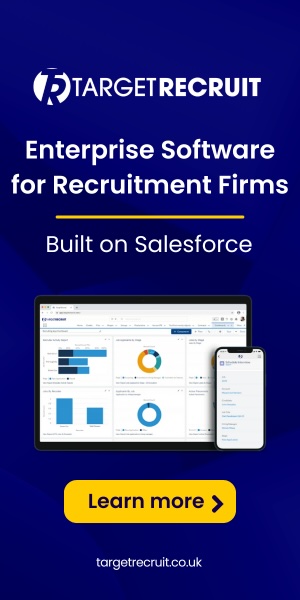Adzuna is calling on all businesses to show salaries in their job ads
New research by Adzuna has revealed the biggest gripes facing jobseekers up and down the country, with half (48%) claiming that no salary or a lack of salary clarity on job ads is their biggest bug bear.
It comes as seven in ten Brits (69%) think employers need to be more transparent on their job ads, with a third (31%) believing salary transparency should be the number one priority on postings – more important than the job role itself (18%), the location (11%) or any work benefit schemes (7%).
Adzuna is calling on all businesses to show salaries in their job ads, are campaigning for the UK government to make including salaries on job ads a legal requirement.
The online jobs platform believes that employers not including salary information on job ads is leading to hours wasted for jobseekers. More than a third (36%) declined a job straight-out after they found out the intended salary, after going through lengthy interview processes. On average, jobseekers wasted six hours applying per position, with the wrong salary with 13% wasting over 10 hours on the process and 3% investing over 20 hours interviewing for the wrong job. In total, Adzuna analysis on job hunting activity over the last five years alone revealed UK workers have wasted over 70 million hours applying for jobs with the wrong salary*. Now, almost half of workers (46%) wouldn’t attend an interview in future if they didn’t know what an employer was willing to offer in terms of salary.
Salary transparency fuelling the gender pay gap
Whilst the lack of salary transparency is frustrating on a practical level, it’s also hiding a bigger issue by helping perpetuate the gender pay gap. The research revealed that women (33%) are much more likely to find lack of salary transparency an issue when compared to men (21%). There is also a connection between salary transparency and the gender pay gap. A recent analysis by The Times*2 called out companies with the biggest gender pay gaps, including ASOS, EasyJet and Savills, all of which have low levels of salary transparency according to the Adzuna data.
North vs South divide
There also appears to be a regional divide when it comes to salary transparency. Yorkshire and The Humber (63%) is the most open and honest whilst London (55%), Scotland (49%) and Northern Ireland (28%) are at the bottom of the roster. Interestingly, London has been cited in the news as having both the worst ethnicity pay gap and worst gender pay gap which adds fuel to the fire*3.
Industry breakdown
The lack of salary transparency is an industry-wide problem, but certain sectors are faring better than others. Charity and voluntary jobs (88%) are the most transparent, followed by social work (76%) and manufacturing (75%). Creative and design jobs (32%) are the least transparent, while retail jobs (37%), energy jobs (39%) and IT jobs at (43%) also rank amongst the lowest.
Growing appetite for transparency
UK workers are crying out for more transparency in the jobs market. In fact, the lack of salary on a job ad makes potential employees sceptical of an employer. A third (32%) assume the company is hiding something, while a quarter believe it shows the company would underpay them (24%). Others think it makes the company look untrustworthy (22%), unprofessional (21%) or shows them to be biased on how they pay their employees (18%).
A third of Brits (32%) don’t know how much their colleagues are getting paid but four in five (80%) would be open or are neutral to their colleagues knowing how much they earn. Two thirds (63%) think employers making salaries more transparent would make the workplace fairer.
Salary transparency the start of the issue
Salary transparency is just the tip of the iceberg. The worst bug bear is not receiving a reply after applying for a role (32%). Alarmingly, jobseekers have applied on average for seven jobs in the last five years with just three in ten (30%) of those applications leading to an interview. So deep is the issue that four in ten (42%) Brits have wanted to move jobs but decided against it as the process of job hunting is too stressful. On average, this led them to staying in the job for an additional 3.5 years. A tenth (13%) are still in their job as a result.
Adzuna has worked with straight-talking TV personality, Olivia Attwood, who hit the streets to get the nation talking about salary transparency.
Olivia commented: “Let’s be honest (I always am!), job hunting can feel like a nightmare. Whether it’s rubbish job ads with no salary details and unrealistic standards or being ghosted after an interview – there’s a reason I applied to be on reality TV – job hunting wasn’t for me. It’s great that Adzuna is tackling the issue straight-on and campaigning to make salaries on job ads a law. I’m all for more transparency – I even tried to sign the petition twice!”
Doug Monro, Co- Founder & CEO at Adzuna commented: “Our research has confirmed what we have thought for a long-time – jobseekers are fed up with the job application process and the lack of salary transparency on job ads is one of main issues. We’re campaigning to make salary transparency law in the UK and calling on all companies to join our mission. We want employees to know their worth and waste less time on applications, but we also want to bring value to employers who will be able to attract the right candidates. Most importantly, we want to combat the existing gender pay gap and see salary transparency as the start of this important journey.”












